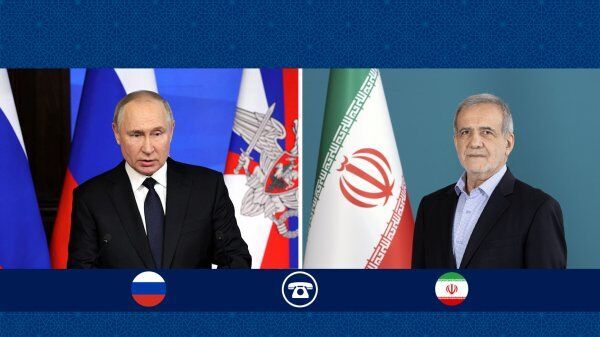AhlulBayt News Agency (ABNA): Iranian and Russian presidents have discussed recent terrorist activities in northern Syria, emphasizing the necessity of joint efforts to assist the Syrian government in countering terrorist groups.
During a phone conversation on Monday evening, Iranian President Masoud Pezeshkian and his Russian counterpart Vladimir Putin reviewed the developments involving terrorist groups in northern Syria.
Both presidents described these movements as a serious threat to Syria's stability and regional security.
Pezeshkian highlighted that while the ceasefire in Lebanon had sparked hopes for regional calm, renewed terrorist activities in northern Syria, backed by the Zionist regime, have once again placed the region on high alert.
The Iranian president warned that the resurgence of terrorists in Syria threatens not only the country’s security and stability, but also poses a significant risk to the broader region.
Pezeshkian underlined that the US and the Zionist regime are pursuing a dangerous agenda aimed at destabilizing the region for geopolitical gains, expressing confidence that regional cooperation would thwart these plans.
Commending Russia's pivotal role in maintaining regional peace and supporting Syria's territorial integrity, Pezeshkian reaffirmed Iran’s readiness to collaborate closely with Russia to address the crisis and support the Syrian government.
In response, Putin echoed Iran’s concerns, condemning terrorist activities in northern Syria and their impact on Syria's sovereignty and regional stability.
He emphasized that the root of the current unrest lies not with the terrorists alone, but with their external backers.
Putin reiterated Russia’s commitment to cooperating with Iran to aid Syria in confronting terrorist threats.
The Russian president further stated that Moscow would leverage all available diplomatic channels to contain the situation and curb the spread of terrorism.
He announced a proposal for an emergency meeting of the Astana Format later this week to address developments in Syria, alongside consultation with the UN Security Council on the matter.
..................
End/ 257

